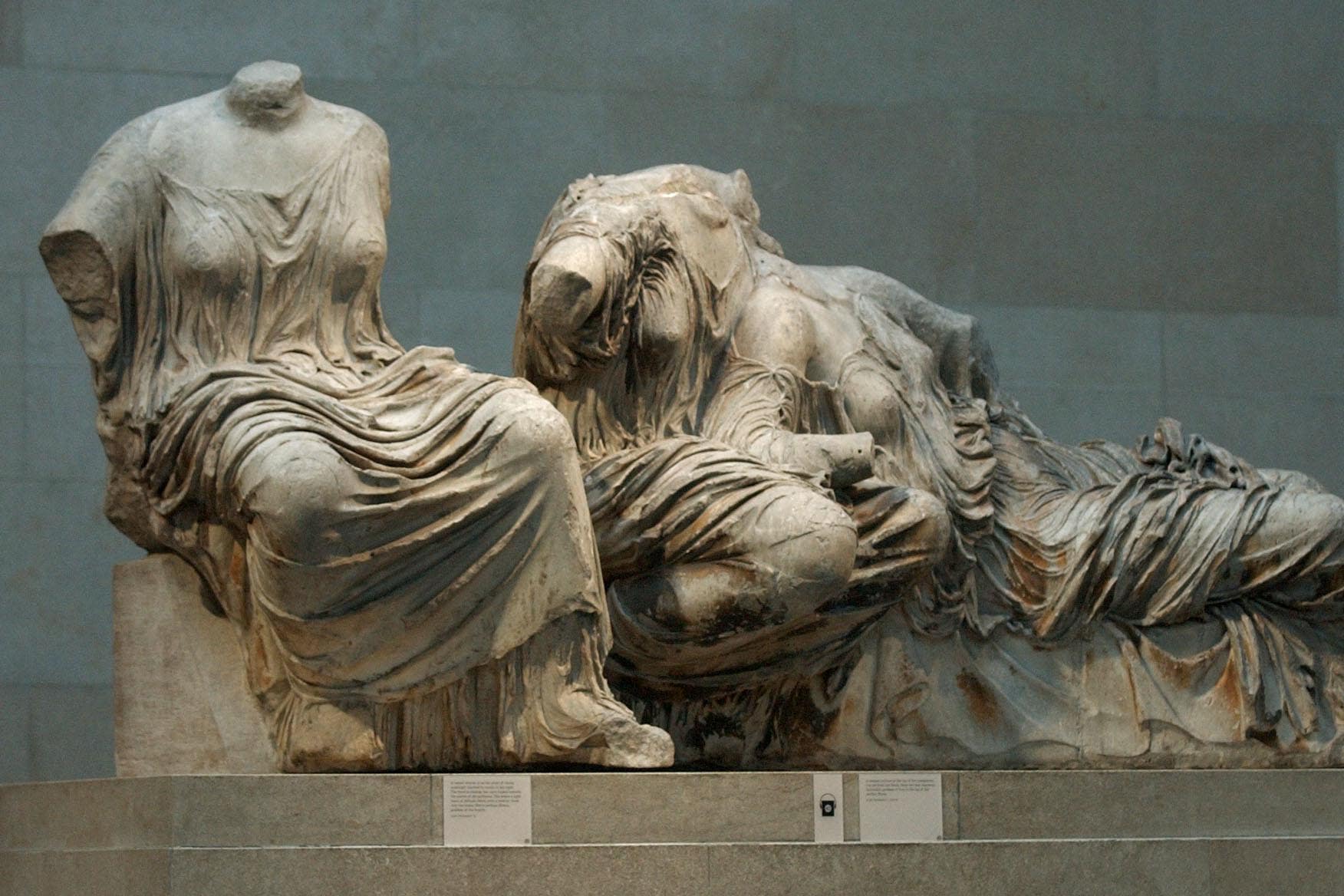Greece should recognise UK’s ownership of Elgin Marbles before loan – Frazer
Greece has been campaigning for decades for the return of the Parthenon Sculptures

Your support helps us to tell the story
From reproductive rights to climate change to Big Tech, The Independent is on the ground when the story is developing. Whether it's investigating the financials of Elon Musk's pro-Trump PAC or producing our latest documentary, 'The A Word', which shines a light on the American women fighting for reproductive rights, we know how important it is to parse out the facts from the messaging.
At such a critical moment in US history, we need reporters on the ground. Your donation allows us to keep sending journalists to speak to both sides of the story.
The Independent is trusted by Americans across the entire political spectrum. And unlike many other quality news outlets, we choose not to lock Americans out of our reporting and analysis with paywalls. We believe quality journalism should be available to everyone, paid for by those who can afford it.
Your support makes all the difference.The Culture Secretary has said that Greece needs to first “recognise” that the UK owns the contested Elgin Marbles before the sculptures could be loaned to the European country.
Part of friezes that adorned the 2,500-year-old Parthenon temple on the Acropolis, have been displayed at the British Museum in London for more than 200 years following the removal by Lord Elgin, when he was British ambassador to the Ottoman Empire, in the early 19th Century.
When asked for her opinion on the Elgin Marbles at a meeting of the Culture, Media and Sport Committee on Wednesday, Ms Frazer said: “My view is there is only certain circumstances where you can … transfer objects.
“The British Museum Trustees are responsible for the objects, they were legally acquired and we have no intention of changing the law in relation to those issues.”
When questioned if she would support a loan of the sculptures, she said: “I think it’s very important that the Greek Government recognises that those objects are owned and have been legitimately acquired.
“Objects are loaned from time to time but that is fundamental that our ownership is recognised.”
For decades, Greece has demanded the return of the Parthenon Sculptures, and claimed they were illegally acquired during a period of foreign occupation – which the UK Government rejects.
A purpose-built museum in Athens houses remaining marbles.
George Osborne, the chairman of the British Museum trustees and former Chancellor, is reportedly in talks to return the items, and has previously stated there is a “deal to be done” with Greece to share the artefacts.
Ms Frazer told MPs that she rejected reports that the Government had anything to do with Arts Council England (ACE) warning artists about making “political statements” following the body u-turning on the advice.
“We have not politicised the Arts Council, my officials have not required the Arts Council to do anything in particular,” she said.
“They obviously have a large number of meetings with the Arts Council, where they discuss risk.”
The body warned venues and performers about work that touches on politics and activism in its relationship framework’s section on considering reputational risk in updated guidance.
In February, the wording of the document was changed to say ACE champions “freedom of artistic expression”.